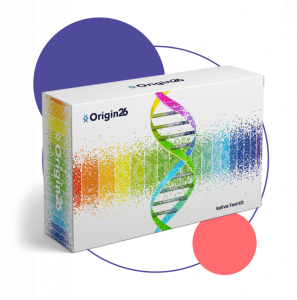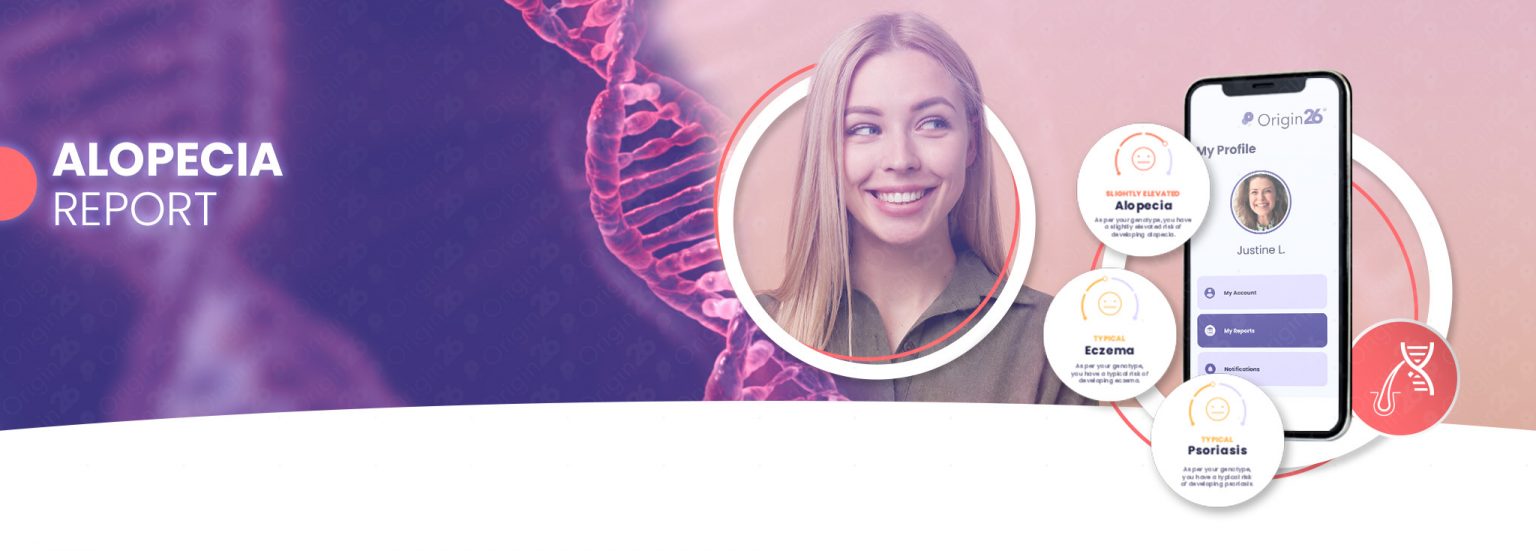
ALOPECIA REPORT
Androgenetic alopecia, known in men as male pattern baldness (MPB), is a very conspicuous condition that is particularly frequent among European men and thus contributes markedly to variation in physical appearance traits amongst Europeans. Recent studies have revealed multiple genes and polymorphisms to be associated with susceptibility to MPB.
Hair loss treatments come in many shapes and sizes, including medications, vitamins and supplements, oils, shampoos, and everything in between. However, not all treatments are backed by scientific research, so it’s important to understand the evidence behind each option.
Additionally, not all treatments work for everyone and even with scientifically proven treatments aimed at the correct underlying cause of hair loss, treatment success can still be determined by your genetics and style factors. life.
For example, a common and proven ingredient for hair loss is topical Minoxidil and numerous scientific studies indicate that Minoxidil has no effect on 20% of the world’s population. Indeed, their genetics simply do not respond to this ingredient and therefore there is no positive effect on the treatment of hair loss.
Ultimately, a NutriGenomic DNA test can help achieve a healthier lifestyle and prevent certain chronic diseases related to nutrition by providing personalized and tailored nutrition.
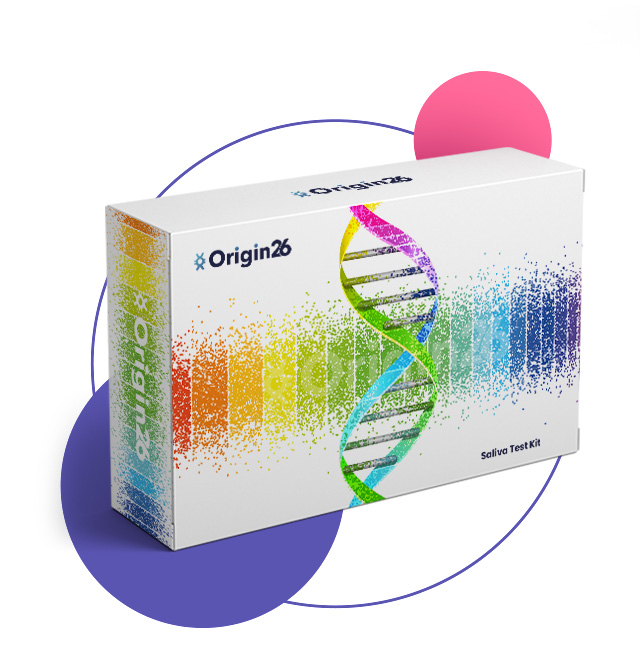
ALOPECIA REPORT
DNA Analysis Report Sample

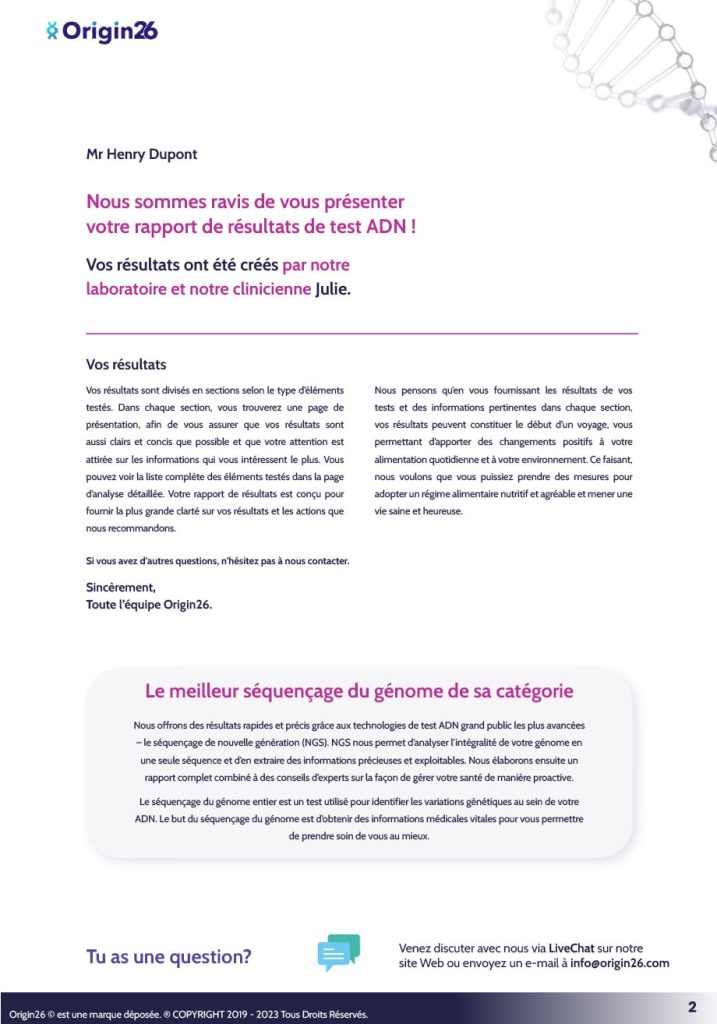
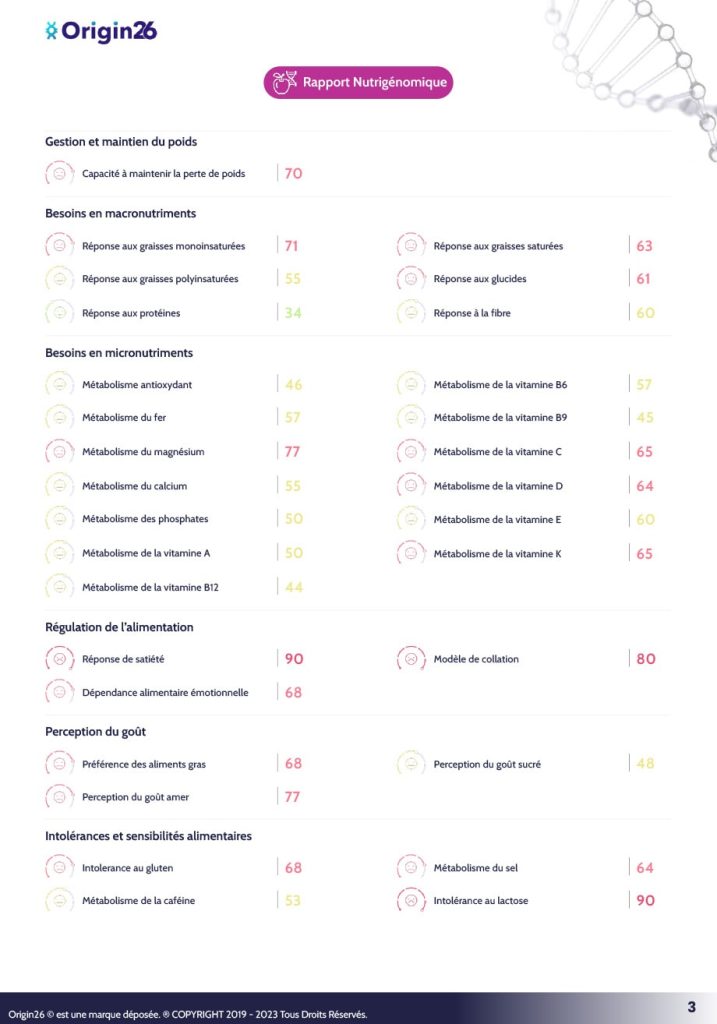
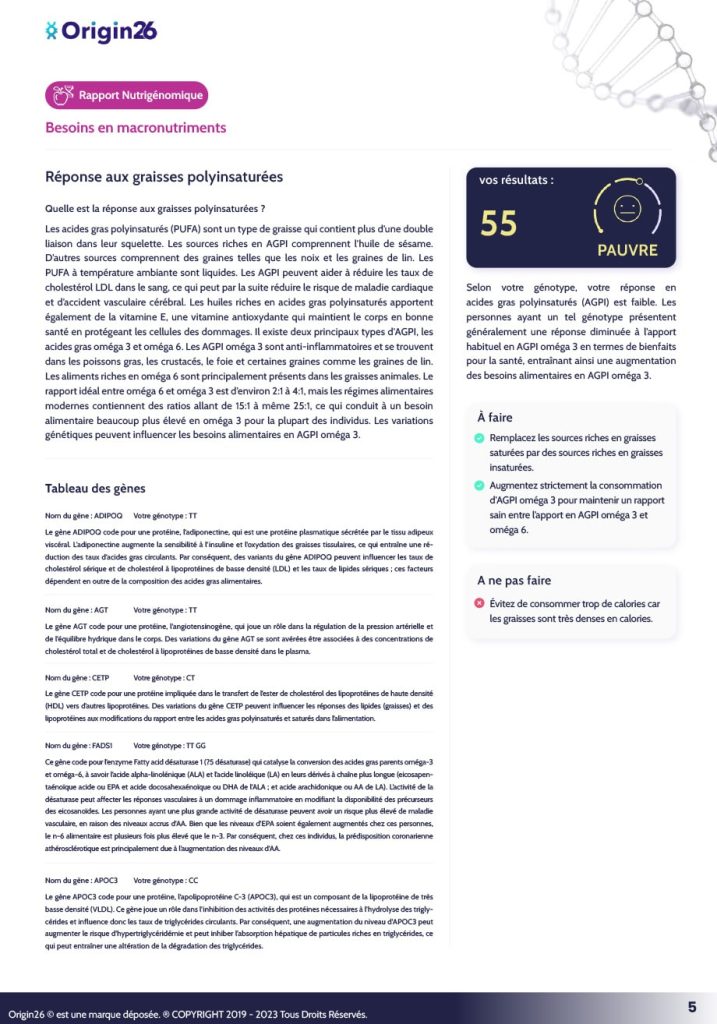
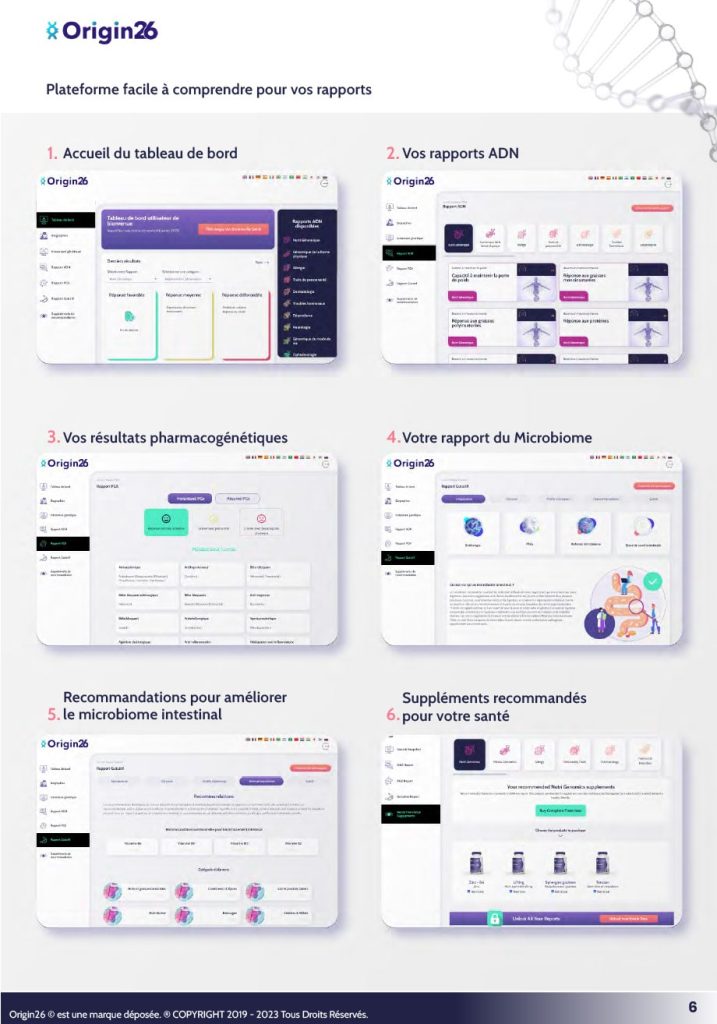
The DNA report includes
Iron metabolism
Vitamin B9 metabolism
Vitamin C metabolism
Vitamin D metabolism
Vitamin A metabolism
Irritant contact dermatitis
Alopecia
Striae Distensae
Acne
Sun burn
tanning ability
Sunspots
Psoriasis
Eczema
Pemphigus foliaceus
Vitiligo
Low testosterone levels
Type 1 diabetes
Discoid lupus
Autoimmune hemolytic anemia
Pemphigoid
Lichen planus
Systemic sclerosis
Systemic lupus erythematosus
Dermatomyositis
microscopic polyangiitis
Irritant contact dermatitis
Venous thrombosis
Infectious endocarditis
Immune thrombocytopenia
Psoriatic arthritis
Low testosterone levels
Vitiligo
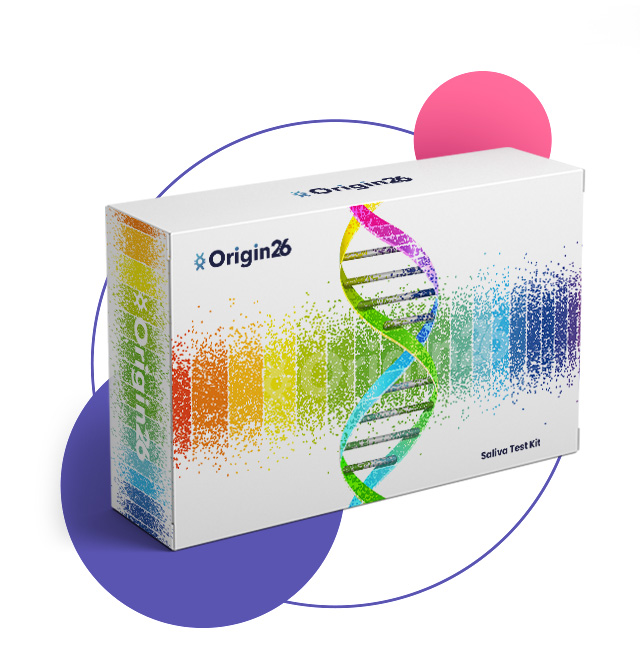
5 easy steps to get your O26 Genetic Assessment
1. BUY THE KIT
Order your complete DNA test via our online store today or
2. REGISTER THE KIT
Go online to Origin26.com and register your kit barcode
3. COLLECT DNA
Use the swabs found in the kit to collect your DNA and send the samples to our lab.
4. ANALYZE THE DNA
You will receive an email when your samples arrive at the lab and our science team will extract and process your DNA for gene analysis
5. RECEIVE THE REPORT
You will receive an email within 6/8 weeks indicating that your personalized report has been uploaded to your secure online account and is ready for viewing.
PERSONALIZED ASSESSMENT
Your Precision Health
Your DNA test includes:
1 DNA sampling kit delivered to your home.
SNP and gene explorer
Laboratory analyzer, follow-up and recommendations
Comprehensive food, nutrition and fitness reports
Personalized nutritional formula
Your secure information

What is Genetics?

Humans are made up of cells
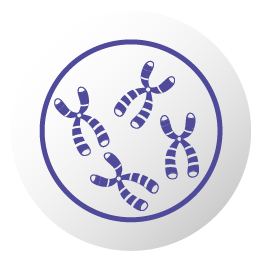
Cells consist of nucleus

The nucleus is made up of chromosomes
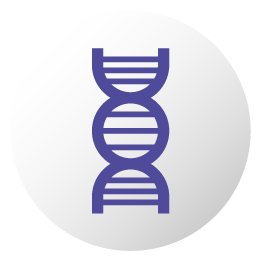
Chromosomes are made up of DNA
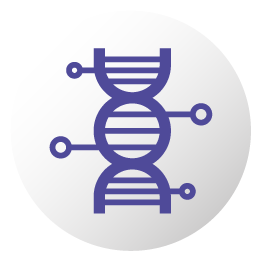
DNA is made up of genes
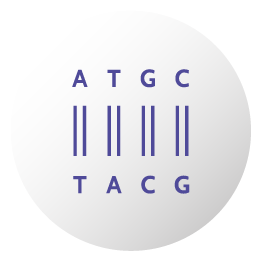
Genes are encoded by nucleotides
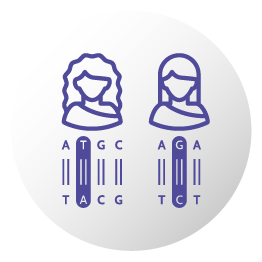
Changes in nucleotides lead to genetic variations

What is Predictive Genetics?
Genetic variations make us all unique

Population prone to curly hair

Population prone to blue eyes

Population at high risk of obesity

Population at high risk of heart attack
- Shils ME, Shike M, Ross AC, Caballero B, J-Cousins R. Modern Nutrition in Health and Disease. 10th ed. lippincott Williams A wolters Kluwer Company; Philadelphia: 2006. Chapter: 39.
- Subbia MT. Nutrigenetics and nutraceuticals: the next wave riding on personalized medicine. Translation Res. 2007;149(2):55–61. – PubMed
- Bull C, Fenech M. Nutrigenomics and nutrigenetics of genome health: nutritional requirements for chromosome stability and telomere maintenance at the individual level. Proc Nutr Soc. 2008;67(2):146–56. – PubMed
- Fenech M. Genome nutrigenomics and nutrigenetics health-nutritional diagnosis and treatment of genome damage on an individual basis. Food Chem Toxicol. 2008;46(4):1365–70. – PubMed
- El-Sohemy A. Nutrigenetics. Forum Nutr. 2007;60:25–30. – PubMed

